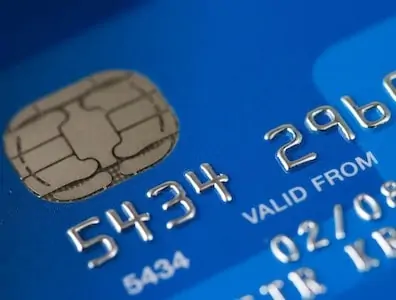
For small- to medium-sized (SMB) businesses, taking out a loan doesn’t always come easy. Since the recession in 2008, traditional lenders don’t usually grant loans to small businesses or a small business credit card that easily. The situation makes it harder for small business owners to secure funding and boost their business’ capital.
Fortunately, alternatives such as a small business credit card are available for these businesses. With one, companies can enjoy a myriad of benefits, including the chance to build or improve their credit standing, purchase business needs on the go, or get discounts on travel, hotel stays, or gas.
While business credit cards do gift you with that perks, they could quickly work against your business if you use them irresponsibly.
To avoid that, focus on these seven tips that will help you maximize your card and better manage your debt efficiently:
1. Understand the benefits and risks of having a business credit card
Be sure to know what the pros and cons are when it comes to using a business credit card. In general, a small business credit card offers two major advantages.
One, it provides quick access to cash whenever you need it. With a more accessible credit line, you’ll be able to make purchases for business on the go. If you’re experiencing any cash flow gaps and pay for short-term expenses like inventory, a credit card will give you the funds, so you won’t have to go through the trouble of applying for a loan and wait for months to get approved.
Secondly, business credit cards help build your business credit history. The longer your credit history is, the better. However, you have to make sure that you’re repaying your balances on time to avoid tainting your credit report. Missing or late payments can negatively affect your credit score, and therefore, your chance of qualifying for loans with better terms.
Credit card companies will require a personal guarantee to secure the loan. A personal guarantee means that in the event that the business becomes unable to pay the credit card balance, the owner(s) will assume the responsibility of paying it back using their personal resources. In other words, your personal assets would be put in the line in case your business experiences major financial trouble.

2. Keep track of your purchases
If you’re not the only one using the credit card in your company and your employees have their own issued business credit cards, it’s always smart to keep track of every purchase. Credit card companies typically send out monthly statements that outline every transaction made using the company’s card. It also categorizes spending and organizes it by employee usage.
By reviewing that at the end of the month, you’ll know if you’ve been overspending on that month and work on getting everyone on the same page and cutting back your expenses. If your employees are abusing their business credit card privileges, you will also know that by checking the monthly credit card statements.
It helps to go over each of your purchases each month and see if it matches your company’s books. This way, if you spot any unusual activity or a mistake, like a purchase you or your employees didn’t make, you can immediately report it as you might be a victim of credit card fraud. The credit card company will then take action and change your credit cards to avoid further damage.
3. Pay your bills on time
Late payments not only accumulate interest on unpaid balances but can also hurt your credit score. In turn, it reduces your chances of qualifying for business loans in the future. As much as possible, pay your bills before the set deadline. While it may seem like a no-brainer, many business owners often forget to pay their bills on time because they get caught up in managing their business.
To avoid late payments, set-up an automated payment system that allows you to send recurring payments to your suppliers and lenders. If you can pay your balance in full at the end of each month, do so. It will help you save hundreds to thousands of dollars each month since you won’t have to pay for the interest rate accumulating on unpaid balances.
4. Don’t use your small business credit card for personal expenses
It can be tempting to make a personal purchase using your business credit card, especially when you’re a start-up. But mixing personal and business can make expense tracking more difficult and can lead to you maxing out your credit limit. If this happens, it can make debt management even more difficult. Once you’ve gone over your limit, you may have a hard time paying it off which can ultimately damage your credit score.
Using your small business credit card solely for business expenses shows lenders and the IRS that you’re responsible enough to handle your expenses. This leads to a better credit standing which will improve your chances of getting more affordable credit in the future.
5. Apply for the right card
With virtually hundreds of business credit card providers out there, choosing one that best suits your company can be challenging.
When choosing the best credit card for your business, here are some of the things to consider:
- Annual fees. Credit cards comes with an annual fee that acts as the consumers’ payment for the credit card use. It can range from $0 to hundreds of dollars. Credit cards with an annual fee may come with extra benefits like a point-reward system that you can convert into travel miles, seat upgrades, discounts, and more. Those without annual fees may not have as many benefits as credit cards that charge one.
- Charge cards or standard credit cards. Charge cards require you to pay off your balances at the end of each billing period. If you don’t use your business credit card that often and just like to have the convenience of paying for a business expense when they don’t have enough money on hand, charge cards might be a better option. Standard credit cards let you carry a month-to-month balance. In other words, you don’t need to pay your balance in full at the end of each billing cycle.
- Look into your business’ needs. Each business is unique, and it’s safe to say that there’s no one-size-fits-all option when it comes to the right credit card for every business. With that, it’s helpful to examine your business operations and mobile banking needs.. If your business requires you or your employees to travel frequently, a card that rewards airline ticket purchases. For trucking and transportation businesses, a credit card that rewards fuel and gas may be a viable choice. Choose a credit card that offers reward programs, including insurance, that suit your business’ lifestyle.
6. Keep your credit utilization at minimum
Your credit utilization ratio (CUR) plays a part in maintaining your business credit score. High CUR usually translates to a lower credit score.
If possible, keep your credit utilization at less than 30%. This means that if you have a credit limit of $10,000, your credit usage shouldn’t go over $3,000. If your CUR exceeds 30%, you can lower it by paying off your balance.
Once you’ve managed your credit utilization, it shouldn’t be that hard to keep up with your monthly credit card payments.
7. Report a missing card immediately
Credit card fraud is a common issue among credit card users. If not addressed immediately, it could lead to thousand-dollar loss on your business. If this happens to you or one of your employees, it’s vital that you report the incident immediately to your credit card providers.
Depending on the security measures that your issuers have in place, they could either replace your business card or lets you lock the card through a mobile app. If you’re not sure what to do, call your credit card issuer immediately to resolve the incident and avoid more losses.
The Bottomline: Use Your Small Business Credit Card Wisely
A small business credit card can be an indispensable tool for SMEs. It offers many perks for small businesses, including the chance to build business credit and quick access to cash. However, to fully unlock your card’s benefits, you have to know how to use it responsibly.
Keep the tips mentioned above in mind to keep your credit card debt at a reasonable level. If you’re consistent with your credit card habits, you can expect to build your business credit history, improve your chances of qualifying for better financing options, and open more opportunities for your business in the future.

